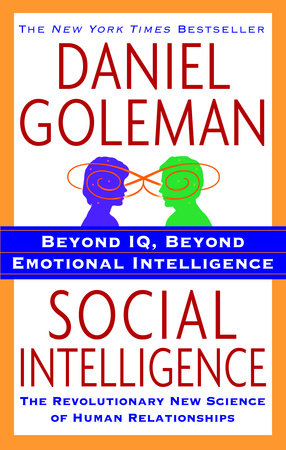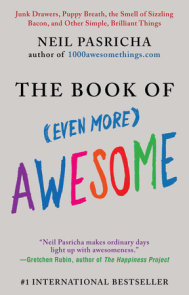READERS GUIDE
Is there a way to raise our children to be happy? To heal our marriages? Reduce on-the job bickering? In the twenty-first century, the answer is yes. Taking us beyond the groundbreaking power of emotional intelligence revealed in his previous runaway bestsellers, Daniel Goleman now presents startling new findings regarding the science of social interaction. Exploring a broad spectrum of relationships—between parents and children, bosses and co-workers, teachers and students, husbands and wives, and even world leaders navigating international politics—Social Intelligence reveals how cutting-edge research in neuroscience can explain and enhance our most fundamental experiences with one another, revealing that we are all “wired to connect.” Bridging intriguing discoveries with everyday experiences ranging from attraction to anxiety, Social Intelligence unlocks the keys to our true nature. And, contrary to what pessimists claim, that true nature is a compassionate one, with a built-in bias toward friendship, cooperation, and generosity.The questions and discussion topics that follow are intended to enhance your reading of Daniel Goleman’s Social Intelligence. We hope they will enrich your experience of this exhilarating guide to the science of human interaction.
Questions and Topics for Discussion
1. The book’s most fundamental revelation, that human beings are neurologically inclined to be sociable, illustrates the potential for compassion and collaboration in a variety of circumstances. Is technology at odds with this concept? Does American society foster isolation more than sociability?
2. What are the implications of Goleman’s observations regarding immune systems and relationships? Which of your relationships have most enhanced your physical and emotional health? Have you been in a relationship that undermined your health? What does the science of “mirror neurons” teach us about our personal interactions in general?
3. What aspects of the chapter titled “The Set Point for Happiness” surprised you the most? Did it change your concept of ideal strategies for raising children? What messages from your parents influenced your own “set point’? What contemporary approaches to child-rearing may actually undermine a young person’s future happiness?
4. What is the best way to apply Social Intelligence to the realm of love and sex? Do our impulses enhance or inhibit the potential for happy relationships in the modern world?
5. Have you had encounters with those whose social intelligence is skewed in a destructive direction? How can our approach to such segments of society, including narcissists and violent sociopaths, improve with greater knowledge of the dance between environment, hormones, genetics, and neurology? How can this knowledge enhance our ability to detect lies and delusion?
6. Goleman describes cases of “mindblindness,” associated with a range of diagnoses, including autism. To what degree is the ability to read other people’s emotions essential? Is “mindsight” more crucial or less crucial to success than it was in previous generations?
7. What is the role of etiquette and social custom in reducing “I-It” interactions? Are traditional guidelines for manners stifling or healthy?
8. Goleman eloquently describes the role of teachers in modeling and nurturing the potential of social intelligence. Where were the greatest harms enacted in previous systems of American education? Where are the best solutions currently flourishing?
9. Social Intelligence opens with an example of a potentially devastating military situation that was diffused with smiles and non-aggressive body language. What are the broader implications of the book’s findings for conflict resolution around the world? What cultural stigmas and animosities can be dismantled through social intelligence?
10. To what extent can business leaders begin to quantify happiness with the verve they apply to economic success? What would it take for the West to embrace the concept of a “gross national happiness” emphasized in the Himalayan kingdom of Bhutan?
11. The sweet spot for achievement clearly calls for reducing anxiety and stress. What personal prescription can you devise to implement this? What opportunities for better interpersonal connections exist in your life?
12. Daniel Goleman frequently refers to “high road” mental functions (those that tend to be more closely related to conscious decision making) versus automatic “low-road” reactions. Do you tend to operate primarily from a high- or low-road perspective?
13. How does the field of epigenetics (proposing that environmental factors can change the ways genes operate, without altering the DNA sequence) compare to previous ideas about the power of genetics? How does this approach change your perception of the role genes play in shaping our behavior, and vice versa? What are the implications of this approach for the nature-versus-nurture debate?
14. Do Goleman’s observations make you feel optimistic about society? What do you predict for future populations raised with knowledge about social intelligence?
15. In what ways are the principles of social intelligence distinct from those of emotional intelligence, explored in Goleman’s previous work? In what way is emotional intelligence, with an emphasis on self-awareness and self-management, the essential foundation for the outwardly focused concepts of social intelligence?




















